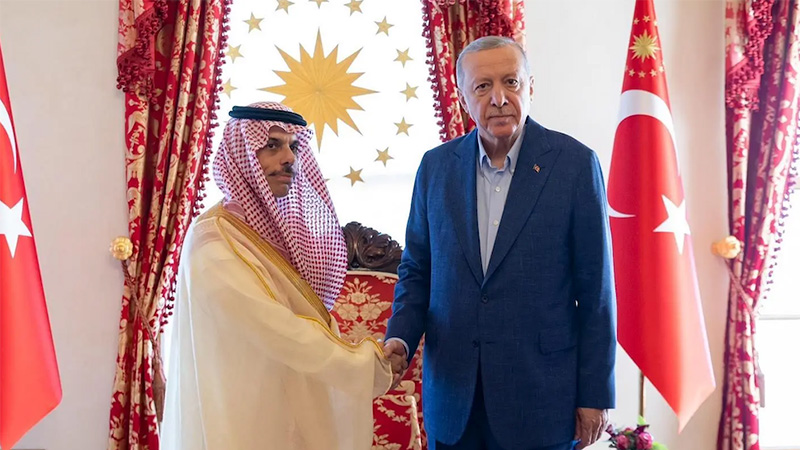As the distribution of power shifts in the region, with Iran losing relative power and Israel and Turkey emerging on top, an intensified rivalry between Tel Aviv and Ankara is not a question of if, but how. It is not a question of whether they choose the rivalry, but how they choose to react to it: through confrontation or peaceful management.
As I describe in Treacherous Alliance, a similar situation emerged after the end of the Cold War: The collapse of the Soviet Union dramatically changed the global distribution of power, and the defeat of Saddam's Iraq in the Persian Gulf War reshuffled the regional geopolitical deck. A nascent bipolar regional structure took shape with Iran and Israel emerging as the two main powers with no effective buffer between them (since Iraq had been defeated). The Israelis acted on this first, inverting the strategy that had guided them for the previous decades: The Doctrine of the Periphery. According to this doctrine, Israel would build alliances with the non-Arab states in its periphery (Iran, Turkey, and Ethiopia) to balance the Arab powers in its vicinity (Iraq, Syria, and Egypt, respectively).
But after 1991, there were no Arab states left that could pose a conventional military threat to Israel. Israel’s focus, as a result, shifted to Iran. The new threat to Israel, Israeli decision-makers decided, was no longer the Arab vicinity, but rather the Persian Periphery.
What was odd, of course, was that Iran's hostility toward Israel throughout the 1980s, was not seen by Israel as decisive, as its focus was on Iraq and the Arab states. In fact, throughout the Khomeini era, Israel sought to reestablish relations with Iran and despite getting rebuffed by the clerical regime, Israel lobbied Washington to talk to Iran, sell arms to Iran, and not pay attention to Iran's anti-Israel rhetoric because it wasn't reflective of Tehran's real policies.
Iran was at first taken by surprise by the Israeli shift. At the time, its revolutionary zeal was fast declining, and the Rafsanjani government was desperately seeking to establish better relations with the US to gain access to investments and economic opportunities. It offered the US access to Iranian oil fields and sought to participate in the major conferences aimed at establishing the region's geopolitical order. But Iran was rebuffed by Washington and excluded from the Madrid conference.
Instead, Israel convinced Washington that for Israel to make peace with the Palestinians, the U.S. needed to neutralize the new threat Israel was facing —- Iran's Islamic fundamentalism — by sanctioning and isolating Iran. As Martin Indyk told me, the more peace could be established between Israel and the Palestinians, the more isolated Iran would become. The more isolated Iran was, the more peace there could be between the Israelis and Arabs.
This is when the real Israeli-Iranian rivalry begins.
Read the full piece by Dr. Parsi HERE on Responsible Statecraft






